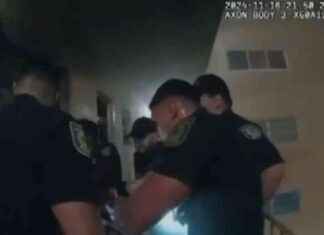I don’t remember if we were devastated because Miguel Ángel Blanco was already dead or if we were exasperated by the possibility that ETA would assassinate him after having kidnapped him. We did not know that young man with full lips and candid eyes; but we were on the street in his name. a crowd We were advancing little by little, in silence, through the streets of the center of Girona, when I came across a familiar face, a politician with a long career, who, giving the small talk, emphasized a specific aspect of the demonstration: most of those protesters were the first time they mobilized politically. Today many fashions and eye-catching styles of dress coexist simultaneously in the streets, but 25 years ago the intentional clothing of the progressives, habitual protesters, was still distinguished from the conventional one. Also in the language it was noted that some unprecedented political actors had taken to the streets: for the first time in a demonstration in Girona, there were many who spoke in Spanish.
In Girona, as in so many small cities in the first decades of democracy, the politicized were a minority. An influential and noisy minority, although not very decisive. The groups of the extreme left, the trade unionists and the incipient independence movement often demonstrated, but they were always the same. There was no tradition of demonstrating for more generic causes. That was a great transverse demonstration.
Of fanatical, bloody and cruel inspiration, the execution of Miguel Ángel Blanco was one of the many barbarities of ETA; and, at the same time, his biggest mistake. As they stripped all the misery from him, they turned the victim into a martyr. With the cold murder of that young man, ETA lost its monopoly on the streets of the Basque Country. He lost the remains of understanding with which some nostalgic for anti-Francoism justified the attacks (indifferent to the evil caused both to specific people and their families and to the democratic system). This was the paradoxical effect of a murder as cruel as it was stupid: ETA helped make passive Spaniards aware of their political weight. ETA wanted to subvert Spanish democracy and reinforced it by pulling a part of the depoliticized citizenry out of indifference. José M. Aznar cannot be blamed for taking advantage of the deep malaise against ETA to push the Spanish towards a recentralizing vision of the Constitution. The obligation of a politician is to expand his vision of things. ETA, which tried to kill Aznar (it almost succeeded), contributed decisively to Aznar’s thesis on Spain becoming hegemonic.
Of all the errors of this ETA assassination, the most cretinous was the procedure chosen to martyr Miguel Ángel Blanco. ETA had kidnapped that young PP councilor and made public an ultimatum: either the state gave in and brought the prisoners closer to the Basque Country, or they would execute the kidnapped person. The blackmail kept the entire Spanish population in anguish for 48 hours. ETA wrote a script for a real movie, a snuff movie with a suspense supplement. No series or film has the possibility of keeping all the citizens of a country with their hearts in their fists for two days in a row. ETA did. Never an achievement was more stupid. It was a murder, but also a boomerang: moral defeat, prior to dismantling and surrender. He wanted to be a liberation guerrilla and he was nothing more than a hateful and disgusting mafia.








